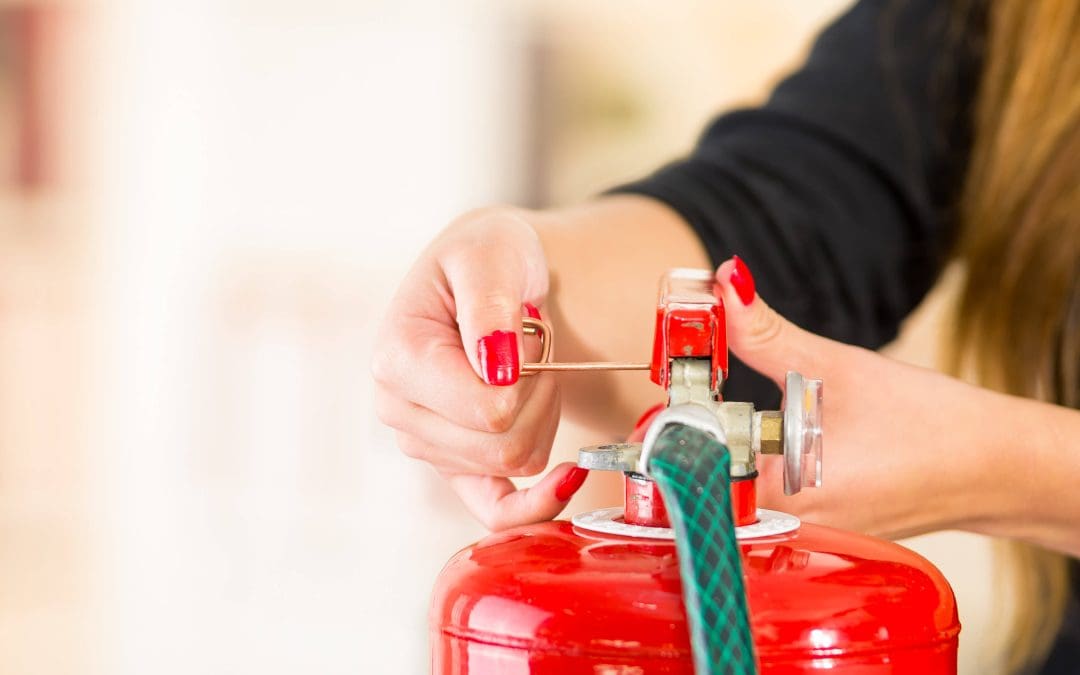A few smart habits and easy upgrades can go a long way in protecting your family from accidents, fires, and even break-ins. Whether you’re settling into a new place or just want to make sure your home is as safe as possible, here are some simple home safety essentials to do just that.
Home Safety Essentials for Fire
House fires can spread fast, so being prepared is key. Start by making sure you have working smoke detectors in every bedroom, hallway, and living space. Check them every month to make sure they’re working, and replace the batteries once a year. Keeping a fire extinguisher in the kitchen, garage, and laundry room is also a smart move. If you ever need to use one, remember the PASS acronym: Pull the pin, Aim at the base of the fire, Squeeze the handle, and Sweep from side to side.
Having a fire escape plan is just as important. Go through your home and figure out two ways to get out of each room. Make sure windows open easily and that doors aren’t blocked. Practicing a fire drill twice a year can help your family react quickly if an emergency ever happens.
Carbon Monoxide: The Silent Danger
Carbon monoxide (CO) is a gas you can’t see or smell, but it can be deadly. It can come from gas appliances, fireplaces, or even your car if it’s running in the garage. The best way to protect your family is to install carbon monoxide detectors on every floor, especially near bedrooms. Test them regularly, just like smoke detectors. If one goes off, get outside right away and call for help. Regularly checking and maintaining your gas appliances can also help prevent CO leaks.
Home Security: Keeping Your Home Safe from Intruders
A few simple steps can make your home much less inviting to burglars. Start by checking your doors and windows to make sure they lock securely. A solid front door with a good deadbolt is a must. For sliding doors, placing a security bar or a wooden stick in the track can help keep them from being forced open.
Outdoor lighting is another great way to deter unwanted visitors. Motion-activated lights near doors and dark areas can make a big difference. Security cameras or a smart doorbell can help you keep an eye on things, even when you’re not home. If you’re going on vacation, setting timers on your lights can make it look like someone is there.
Preventing Falls and Other Household Accidents
Slips and falls are among the most common household accidents, especially for kids and older adults. Keep walkways and stairs clear of clutter and well-lit. Use non-slip pads under rugs, and if you have small children, install safety gates at the top and bottom of stairs. In the bathroom, grab bars in the shower can provide extra support and prevent falls.
Home Safety Essentials to Get Ready for Emergencies
Every home should have a first aid kit with essentials like bandages, antiseptic wipes, pain relievers, and any necessary prescription medications. Knowing basic first aid and CPR can also be incredibly helpful in an emergency.
It’s also smart to be prepared for power outages. Keep flashlights, extra batteries, bottled water, and some non-perishable food in an easy-to-reach spot. A battery-powered radio can help you stay informed if the power is out for a while.
Making your home safer doesn’t have to be difficult. Taking a few simple steps now—like checking alarms, securing doors, and planning for emergencies—can give you peace of mind and keep your family protected. A safe home is a happy home, and with a little effort, you can make yours a place where everyone feels secure.
Vigilant Inspection Services offers professional home inspections to homebuyers and sellers in Arkansas and Missouri. Contact us to schedule an inspection today.
